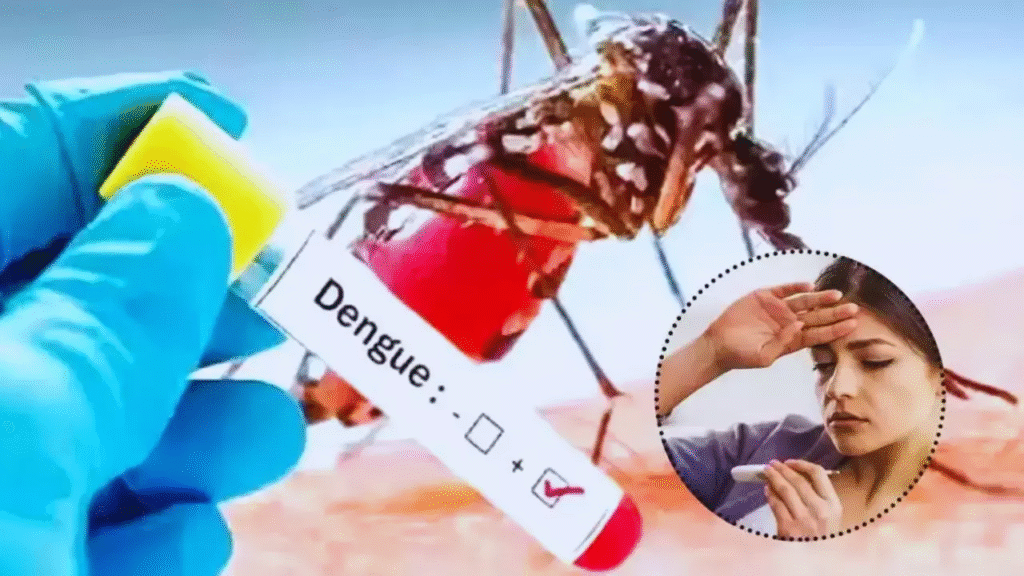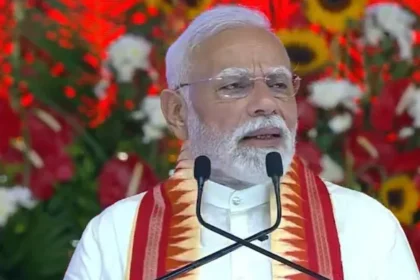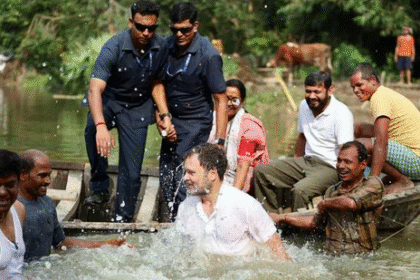Dengue & Malaria Cases Soar 200% in Delhi-NCR After Heavy Rains – Symptoms & 7 Key Prevention Tips You Must Know
Record rains have left Delhi NCR battling a mosquito crisis, with dengue and malaria cases spiking early this year. Stay safe with timely symptoms and prevention tips
This year’s monsoon has done more than cool the summer heat. Large areas of Delhi-NCR have turned into mosquito breeding grounds, thanks to heavy rains. The result: an alarming and early rise in vector-borne diseases. Hospitals are already reporting higher-than-usual cases of dengue, malaria, and chikungunya for this time of the year.
In August 2025 alone, Delhi recorded 286.7 mm of rain — nearly 25% above the monthly normal. With more showers expected, the total is set to cross 300 mm, leaving the capital with a clear surplus this monsoon. Countless pools of stagnant water now act as perfect nurseries for mosquito larvae, fuelling faster case growth compared to previous years. Dr Rajesh Kumar Budhiraja, Director – Internal Medicine, Fortis Faridabad shared his inputs on the subject.

By the end of July, dengue cases had already reached 277, among the highest mid-year tallies in the past five years. Just three weeks later, the number crossed 350, with hospitals admitting nearly two dozen new patients each week. To compare, last year ended with over 10,585 dengue cases and 11 deaths.
Malaria, too, is resurging at a worrying pace. With 124 confirmed cases by late July, the count has already exceeded the total reported last year. Health officials say this is the sharpest rise in nearly a decade at this stage of the monsoon.
Although chikungunya cases remain relatively low at 17, experts warn of its potential to flare up in the coming weeks. Municipal reports show the gravity of the situation: in just one week of July, more than 9,100 mosquito-larva–positive sites were found across the city.
Doctors stress that recognising symptoms early can save lives:
Dengue: Sudden high fever, severe headache, eye pain, nausea, muscle and joint aches, rashes. Severe dengue may cause internal bleeding or circulatory collapse.
Chikungunya: Fever with intense joint pain that may last for weeks or even months.
Malaria: Recurring fever with chills, sweating, headaches, and fatigue. Severe cases may trigger breathing issues, confusion, or organ damage.
Doctors advise immediate hospitalisation if patients show persistent vomiting, stomach pain, bleeding, breathlessness, or sudden confusion.

Prevention remains the strongest defence. Experts recommend:
Avoid stagnant water in buckets, tyres, pots, or construction sites.
Keep water tanks and containers covered and cleaned regularly.
Use mosquito repellents, nets, and full-sleeved clothing during peak activity hours.
Support civic fumigation drives and report breeding sites promptly.
The rise in mosquito-borne diseases highlights how shifting weather patterns are reshaping public health. Unpredictable and intense rains are no longer just seasonal nuisances; they are breeding grounds for outbreaks.
With more rain forecast in September, experts warn of another surge in cases. But awareness, preventive measures, and timely diagnosis can ease the burden on hospitals and save lives.
After weeks of relentless monsoon showers, the Delhi-NCR region is witnessing a sharp spike in vector-borne diseases, with dengue and malaria cases climbing rapidly. Health authorities have raised concerns as hospitals across the National Capital Region report a surge in patients presenting with high fever, severe body pain, and other mosquito-borne infection symptoms.
Heavy rainfall, while bringing much-needed respite from the scorching summer heat, has also led to extensive waterlogging across several areas of Delhi, Noida, Gurugram, Ghaziabad, and Faridabad. Stagnant water has created breeding grounds for Aedes aegypti (responsible for dengue) and Anopheles mosquitoes (which transmit malaria).
According to civic health reports, dengue cases have risen by nearly 200% compared to the same period last year, while malaria cases are also showing an upward trend. Experts warn that if preventive measures are not taken immediately, the situation could worsen in the coming weeks as monsoon rains continue.
Doctors emphasize that early detection is critical in reducing complications from mosquito-borne diseases. Here are the key symptoms:
Dengue Symptoms:
Sudden high fever (up to 104°F)
Severe joint and muscle pain (often called breakbone fever)
Skin rashes and red spots
Headache and pain behind the eyes
Nausea and vomiting
In severe cases: bleeding gums, nosebleeds, and a drop in platelet count
Recurring fever with chills and sweating
Headaches and muscle weakness
Nausea, vomiting, and diarrhea
Fatigue and dizziness
In severe cases: anemia, seizures, and organ complications

Doctors advise that any fever lasting more than 2 days during monsoon should not be ignored, and patients should immediately seek medical consultation to rule out dengue or malaria.
The monsoon season is the peak breeding period for mosquitoes. Even a small amount of stagnant water in buckets, flowerpots, discarded tires, or construction sites can become a breeding ground. Delhi-NCR’s dense population, combined with poor drainage and sanitation in several areas, has made conditions ideal for the rapid spread of vector-borne diseases.
Health experts recommend the following preventive measures to reduce the risk of infection:
Eliminate stagnant water – Regularly clean and empty water containers, coolers, and plant pots.
Use mosquito repellents – Apply creams, sprays, or patches, especially during dawn and dusk when mosquitoes are most active.
Wear protective clothing – Full-sleeved shirts and long pants reduce skin exposure.
Install mosquito nets & screens – Ensure doors and windows are covered with fine mesh screens.
Maintain sanitation – Keep surroundings clean and dispose of garbage properly.
Fumigation drives – Support and report to municipal authorities for anti-mosquito fogging in your locality.
Boost immunity – Stay hydrated, eat vitamin-rich foods, and get adequate rest to strengthen your body’s defense.
Delhi’s civic bodies have launched awareness drives and are conducting anti-larval spraying in high-risk areas. Hospitals are also ramping up testing facilities for NS1 antigen (for dengue) and blood smears (for malaria) to ensure early diagnosis. However, experts caution that the rising number of cases could put additional pressure on healthcare infrastructure if the trend continues unchecked.








